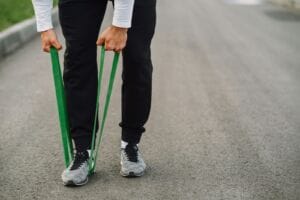The temperature officially hit 100 degrees, which means swim season is officially underway. But what many parents don’t realize is that a lot of pediatric dental emergencies can happen near the swimming pool. In fact, some of the most common injuries occur when kids misjudge distance when jumping in the pool and hit their mouth on the ledge or slip and fall while running on a wet deck.
Delta Dental of Arizona’s Tiffany Di Giacinto was a lifeguard and swim instructor for 12 years and has seen her share of cut lips, sore jaws and chipped teeth. She says it’s important for adults to institute some simple pool rules to avoid pool-related dental injuries and offers the following smile safety tips for swimmers:
- If your child is a young adrenaline junkie, make sure he or she jumps into the pool from safe areas, like diving boards or platforms, and that the area is clear of other swimmers.
- If your little one likes to cannonball, flip or dive into the swimming pool, teach him or her to make sure the landing spot is deep enough. Many traumatic dental injuries are the result of an impact to the face from the side or floor of swimming pools.
- Encourage walking instead of running when around the pool. Running on wet, slippery cement or pool decking can result in a headfirst tumble.
“Most pool-related injuries—dental or otherwise—can be prevented,” Di Giacinto said. “I also recommend caregivers follow the most important water safety rule: Never let children swim without a designated water watcher. It’s also a good idea to keep a phone by the pool so you can call 9-1-1 or your pediatric dentist quickly in case of emergency.”
Even if a child follows all of the pool rules, accidents may happen. Knowing how to respond to a chipped tooth or bleeding in the mouth is a great topic to discuss with your pediatric dentist before an incident happens.
In addition, excessive exposure of the tooth enamel to the chlorine in many pools can cause brownish discolorations. If your child is a competitive swimmer and in the water more than 6 hours a week, talk to your dentist about the best ways to avoid swimming calculus.



